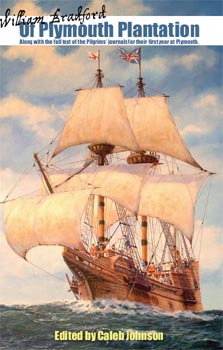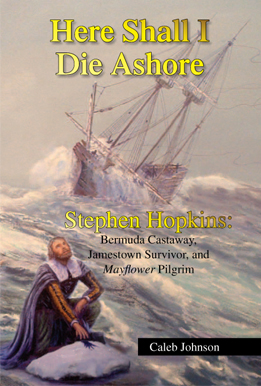The Language of the Wampanoag
The Wampanoag, and many of the other native peoples in New England, spoke a language belonging to the Algonquian language family. The language of the Wampanoag is most closely related to those spoken by the Mohican and Pequot; the neighboring Narragansett spoke a dialect of the same language. The English language has borrowed many Algonquian words, including moose, chipmunk, raccoon, opossum, skunk, squash, succotash, moccasin, tomahawk, powwow, squaw, and wigwam.
One of the first Englishmen to make note of some of the Wampanoag vocabulary was Edward Winslow, who wrote Good News from New England in 1624. Winslow records a brief conversation he had with the Wampanoag leader, Massasoit:
Keen Winsnow? [Art thou Winslow?]
Ahhe. [Yes.]
Matta neen wonckanet namen Winsnow? [O Winslow, I shall never see thee again.]
Winslow also made notes on a number of other words and phrases, but did not compile any kind of a dictionary. In 1630, William Wood published a very small dictionary of words in the back of his book, New England's Prospect.
Learning the Wampanoag and Narragansett language became important to the English who settled in Massachusetts because they intended to convert the Indians to Christianity: and to do so they needed a solid understanding of the language. One of the first to begin studying the language more thoroughly was Roger Williams. He wrote an entire 208-page book on the Narragansett language in 1643, entitled A Key Into the Language of America, in which he grouped words into various topical classifications, such as "Salutations", "Eating and Entertainment", "House and Family", "Seasons of the Year", "The Weather", and numerous other categories. He included not just vocabulary, but grammar and cultural information as well. Two decades later, a missionary named John Eliot translated the Bible into the native language. The completed Bible was published in 1663 at Cambridge, Massachusetts--it was the first Bible to be printed in America. A 1685 edition of the same Bible can be accessed online here. A brief sample from the Bible, taken from Hebrews, Chapter 11:
1. Nano, wunnamptamoonk wutahtoonkanuoo nish annoontamukish, uppahteanittamooonk nith matta naumomugish.
2. Newutche ne nashpe wunaunchemoowononeau Eldersog.
3. Nashpe wunnamptamoonk nuttinnowohtamumun muttaohkeash kesteauunath nashpe wuttinnowaonk God, newaj nish naumukish, matta wutch kesteauouunash nith nogwokish.
4. Naihpe wunnamptamooonk Abel sephausu Godut, moocheke wanegik sephausuonk onk Kain, ne nashpe attumunukup wauwaonk, noh sampweuiseaenuoo, God wauwodtummagooongash, kah ne nashpe, nupuk, ash keketookau.
The first page of Genesis from the 1663 Eliot Bible translated into the native Narragansett language. Image courtesy of the Library of Congress.



